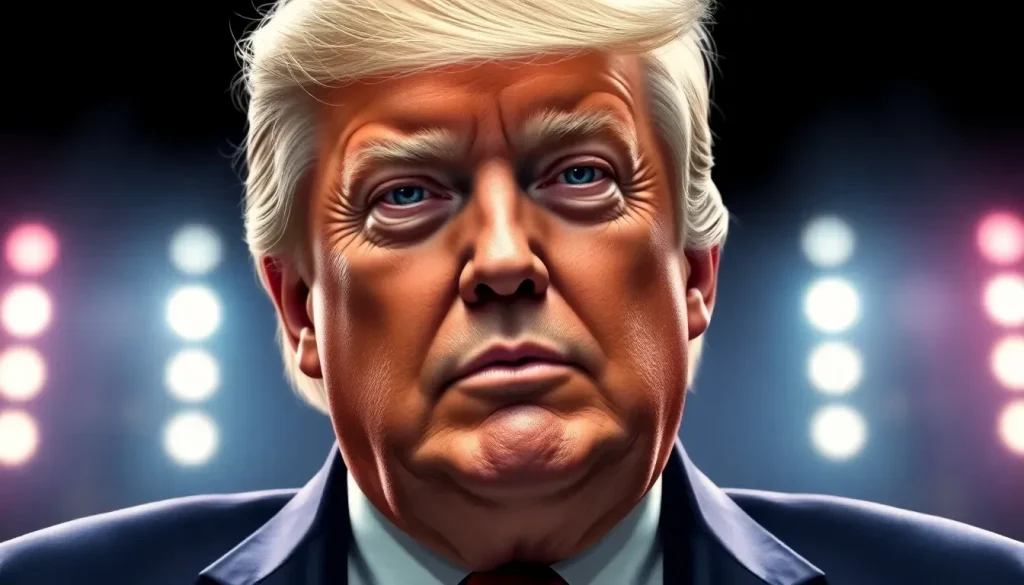Donald Trump threatens film industry with 100% tariffs on movies

The film industry is a complex ecosystem that often finds itself at the crossroads of politics, economics, and social issues. Recently, the U.S. President, Donald Trump, has reignited a controversial debate by proposing significant tariffs on foreign films. This move could have far-reaching consequences for Hollywood and the global film market. Understanding the implications of such tariffs is essential for both industry insiders and moviegoers alike.
Trump's Tariff Threats: An Overview
President Donald Trump has once again raised alarms about potential tariffs on films produced outside the United States. These threats are not new; he initially hinted at implementing a 100% tariff on foreign films several months ago. Such a move could disrupt the Hollywood landscape, affecting not only independent films but also major blockbusters that rely on international filming locations.
In a recent post on his social media platform, Truth Social, Trump reiterated his stance, claiming that foreign countries have "stolen" the U.S. film industry. He expressed his intention to impose hefty tariffs, stating, "Our film business has been robbed of the United States by other countries," and specifically criticized California's leadership in the matter.
This assertion aligns with prior comments he made regarding national security and the notion that films produced abroad could convey misleading messages. Nevertheless, the legality and feasibility of such tariffs remain questionable, leaving industry experts divided on the matter.
Potential Impact on Global Film Productions
If Trump's proposed tariffs are enacted, they could have a dramatic impact on the film industry, affecting countless productions worldwide. The following are key points to consider about how these tariffs may reshape the landscape:
- Wide-ranging Effects: The impact would not only be felt by smaller independent films but also by blockbuster franchises that often shoot abroad.
- Production Costs: Major studios could face increased production costs, which may lead to higher ticket prices for consumers.
- Job Losses: Tariffs could result in job losses in the U.S. if productions choose to relocate or scale down operations.
- Cultural Exchange: The diversity of stories and perspectives could diminish if foreign films are penalized.
- International Relations: Such tariffs could strain relationships with countries that collaborate with Hollywood.
What Films Are Likely to Be Affected?
The proposed tariffs would substantially impact a wide range of films produced outside U.S. borders. Some notable examples include:
- Avengers: Doomsday - Recently completed filming in the UK.
- Dune - A major production with significant international involvement.
- Avatar - Known for its extensive use of global locations for filming.
- Mission Impossible - Frequently shoots in various countries to capture authentic settings.
- Star Wars - Utilizes international studios and locations for its expansive universe.
Furthermore, franchises like James Bond, Fast and Furious, and The Lord of the Rings have all relied on international locales and talent to create their iconic films. Implementing tariffs on these productions could lead to severe financial repercussions for the studios involved.
The Broader Implications for Hollywood
The potential tariffs threaten not only the financial health of production companies but also the creative landscape of Hollywood. The film industry thrives on collaboration and diversity, drawing talent and stories from around the world. By imposing tariffs, Trump risks isolating the U.S. film sector, creating a ripple effect that could stifle innovation and creativity.
Moreover, the economic implications are profound. The film industry is a significant contributor to the U.S. economy, providing jobs and generating revenue. Tariffs could lead to a decrease in foreign investment and partnerships, which are crucial for many high-budget films. This situation raises questions about the sustainability of an industry that has long been regarded as a global leader.
Expert Opinions and Industry Reactions
Industry experts and filmmakers have expressed their concerns regarding Trump's tariff proposals. Many argue that such measures are counterproductive, suggesting that the U.S. should focus on fostering international collaboration rather than erecting barriers. Key points include:
- Creativity Flourishes with Collaboration: Many believe that the best stories arise from diverse perspectives and experiences.
- Economic Partnerships: Collaboration with foreign studios has proven beneficial for both parties, leading to successful joint ventures.
- Potential Backlash: Implementing tariffs could provoke retaliatory measures from other countries, further complicating the international film market.
In this light, the film community is urging lawmakers to reconsider the potential ramifications of such an approach, advocating for policies that encourage rather than hinder artistic expression and international cooperation.
Conclusion
The ongoing discussion surrounding Trump's threats to impose tariffs on foreign films is a clear reflection of the intersection between politics and the arts. As the situation unfolds, filmmakers, industry professionals, and audiences alike must remain vigilant and engaged, understanding the potential consequences of these policies on the global film landscape.
For those interested in further exploring the topic, check out this insightful video that delves deeper into the implications of Trump's tariff proposals on the film industry:




Leave a Reply